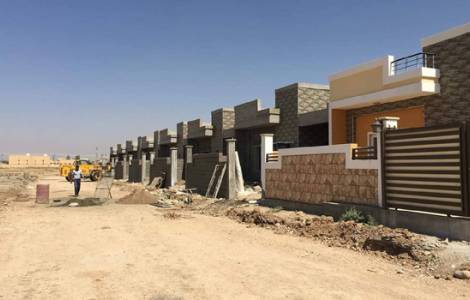
ankawa.com
Mosul (Agenzia Fides) - In the Nineveh Plain, a region of historical roots of the indigenous Christian communities in the territories of present-day Iraq, urbanistic and real estate strategies are underway that run the slogans on the necessary reconstruction and re-start of the country after the years of jihadist occupation, but in reality they have the effect of permanently altering the balance and ethnic composition of the local population. The warning comes from Yohanna Petros Moshe, Syrian Catholic Archbishop of Mosul, who expressed his alarm and concerns in a personal letter sent to Iraqi Premier Adel Abdul Mahdi.
What provoked the Archbishop's concern were the measures of the urban Management of the Nineveh Province aimed at encouraging the creation of new settlements in the area, also in an attempt to support the repopulation of areas and villages that remained deserted after the defeat and the forced exodus of the local populations that occurred during the years of occupation by the jihadist militants of the Islamic State (Daesh).
These administrative provisions, according to the Archbishop, must be suspended and reformulated "before it is too late", if we do not want to definitively alter the traditional plural composition of the population of that region.
In recent weeks, organizations and groups that present themselves as an expression of local Christian communities have expressed suspicions in particular about a building project that involves the construction of hundreds of new real estate units in the urban area of Bartella, a town in the Nineveh Plain, traditionally inhabited by Christians. The project, called "Sultan City" - reports the website ankawa.com - plans to use agricultural land belonging to Christian families, in an area where currently the military control exercised by the popular mobilization forces, Shiite militias considered close to Iran, is very strong. The real estate project, already outlined in 2013, is now being relaunched, after having suffered a long suspension due to the jihadist occupation. And even if on paper a considerable percentage of the houses under construction is reserved for local Christian populations, groups of local militants denounce plans aimed at ensuring the Shabak Shiite minority a monopoly in the acquisition of future new homes. (GV) (Agenzia Fides, 6/3/2019)
 ASIA/SYRIA - An office opened in Raqqa to "protect" the properties of Christians in north-east Syria
ASIA/SYRIA - An office opened in Raqqa to "protect" the properties of Christians in north-east Syria